The realm of education is on the brink of a revolutionary shift with the advent of the Metaverse. As we sail into an era of immersive technologies, the traditional chalk-and-talk methods of learning are being reimagined, paving the way for a dynamic and interactive educational experience. The Metaverse, a collective virtual shared space, converges the physical and digital worlds into one. This evolutionary leap stands to not only enhance the way educators teach and students learn but could potentially redefine the concept of classrooms and campuses altogether.
Interactive Learning Environments
In the heart of the Metaverse, learning transforms into an engaging, hands-on experience. Imagine history lessons where students can virtually time travel to historic events or biology classes where they can explore the human body at a cellular level. This immersive form of education allows for a deeper understanding of complex subjects, resulting in improved retention and a more stimulating learning experience.
- Vivid historical reenactments: Enabling students to witness and participate in significant moments from the past.
- Scientific exploration: Studying biological systems or chemical reactions in three dimensions, akin to real-life experiences.
- Mathematical visualizations: Rendering abstract concepts into tangible models, simplifying understanding through visualization.
Personalized and Accessible Learning
The Metaverse also signals a new era of personalized learning. Tailored educational journeys can be created based on the individual needs, abilities, and learning styles of each student. This personalized approach, coupled with the virtually limitless resources available in the Metaverse, ensures that high-quality education is no longer confined by geographical boundaries. It makes learning accessible to anyone with internet access, thereby democratizing education and fostering greater inclusion. Additionally, AI-driven mentors and guides within the Metaverse can provide real-time assistance and feedback, further enhancing the learning process.
- Custom learning paths: Crafted to suit personal learning preferences and pace.
- Global classrooms: Dissolving physical barriers to connect students and educators worldwide.
- AI assistance: Offering adaptive support and individualized feedback for students.
Collaboration and Social Learning
The social aspect of learning is profoundly amplified within the Metaverse. Virtual spaces allow students to collaborate and communicate with their peers from across the globe, creating a rich tapestry of cultural exchange and shared knowledge. Group projects can be executed in virtual workrooms, and ideas can be shared instantaneously, making teamwork more seamless and expansive. The Metaverse nurtures a learning community where everyone can contribute, exchange, and grow through collective wisdom, all without stepping outside their homes.
- Cultural exchanges: Fostering understanding and appreciation of global diversity.
- Enhanced teamwork: Streamlining collaboration using digital tools and virtual spaces.
- Peer-to-peer learning: Encouraging students to teach and learn from one another in a shared virtual environment.
As technology advances, so must our approach to education. The rise of the Metaverse in education is a game-changer that holds the promise of a more engaging, personalized, and accessible future for learners around the world. It’s a transformative journey from traditional learning to an uncharted realm of boundless possibilities, where the process of acquiring knowledge becomes an adventure in itself.
Interactive Learning in the Metaverse: How Virtual Worlds Facilitate Education
Reducing Physical and Social Barriers
One of the profound benefits of utilizing virtual worlds in education is their ability to transcend physical and social limitations. Students with mobility issues, or those living in remote areas, can participate in classes and extracurricular activities without the constraints of the physical world. Socially, the Metaverse levels the playing field, allowing students who may feel marginalized or anxious in traditional classroom settings to interact and express themselves freely behind avatars, fostering inclusivity and confidence.
Customized Learning Paths and Real-World Skills
The Metaverse doesn’t just change where we learn, but also how. Pupils in virtual classrooms can enjoy customized learning paths, with artificial intelligence tailoring instruction to their pace and learning style. Moreover, as society becomes increasingly digital, familiarizing students with virtual environments can serve as crucial preparation for future workplaces. These experiences can help nurture important 21st-century skills like digital literacy, creative problem-solving, and collaboration across digital platforms.
Immersive Learning Scenarios: The Impact of Metaverse on Knowledge Retention
Exploring the educational frontier, immersive learning scenarios in the metaverse have shown a promising impact on knowledge retention. The concept of a metaverse—a collective virtual shared space—has transcended gaming and entered the realm of education, providing an engaging platform for learners to absorb and retain information. While textbooks and traditional classroom settings have their place, the metaverse’s interactive environments create a more hands-on learning experience that aligns with the ways in which many individuals best retain knowledge.
Creating a Cohesive Virtual Classroom
The metaverse allows educators to craft a cohesive virtual classroom where learners can interact with content in a more meaningful way. Rather than reading about ancient civilizations or molecular structures, students can virtually step into historical sites or explore 3D models of atoms. This kind of engagement can drastically enhance memory retention since it stimulates multiple senses and encourages active participation. This sensory-rich learning is readily accessible and can be personalized to fit varying learning styles and paces, enabling a more inclusive educational environment.
Enhanced Engagement and Participation
Another key benefit of immersive learning is the level of engagement and participation it fosters. When students are simply passive recipients of information, the retention rate can be disappointingly low. In contrast, the metaverse’s immersive scenarios invite learners to become part of the story. They aren’t just observers; they’re active participants, making decisions, solving problems, and collaborating with peers in real-time. This type of interactive learning has the potential to keep students more engaged and, as a result, significantly improve the rate at which they retain information.
Real-World Application Through Virtual Experiences
The powerful aspect of immersive learning within a metaverse is its ability to demonstrate the real-world application of knowledge through virtual experiences. For instance, a student learning about engineering principles can immediately apply what they’ve learned by constructing virtual bridges or buildings in the metaverse. This immediate application bolsters understanding and retention, as theoretical concepts become concrete through action and observation. Furthermore, such virtual experiences can evoke emotional responses, which research suggests play a crucial role in memory retention.
Metaverse Educational Platforms: A Review of the Top Virtual Learning Environments
Exploring the Metaverse: The Future of Education
As technology evolves, so does the landscape of education. The Metaverse, a collective virtual shared space created by the convergence of virtually enhanced physical and digital reality, is an emerging platform providing groundbreaking educational experiences. This digital frontier offers unique opportunities for immersive learning, enabling students to engage in environments that closely replicate real-world scenarios.
The Rise of Immersive Learning Environments
The paradigm shift to virtual learning environments enables educators to transform traditional lessons into interactive, captivating experiences. These platforms leverage 3D simulations, virtual reality (VR), and augmented reality (AR) to foster deeper understanding through experiential learning. Students can conduct virtual lab experiments, simulate historical events, or practice language skills with native speakers without leaving the classroom.
Accessibility and Collaboration across Borders
One of the most powerful aspects of the Metaverse in education is its ability to bridge geographical divides. Learners from different parts of the world can coexist in a singular, digital universe, enabling rich, cross-cultural collaboration and exchange of ideas. This unparalleled access helps democratize education, making high-quality learning experiences accessible regardless of one’s location.
Top Metaverse Educational Platforms
Engage
Engage is a leading Metaverse educational platform designed for creating and sharing educational content. Educators can host lessons, presentations, and meetings in a controlled, virtual environment. With features like interactive whiteboards and virtual field trips, Engage pushes the boundary of traditional learning methodologies.
AltspaceVR
AltspaceVR is a virtual reality software platform where users can connect and create shared experiences. It stands out in education for its social learning component, offering spaces where students can participate in group activities, workshops, and speaker events, prompting lively discussions and collaborative problem-solving exercises.
- Immersive Workshops: Tackling complex concepts with hands-on activities.
- Speaker Events: Featuring industry experts and thought leaders.
- Collaborative Learning: Building soft skills through group dynamics.
Case Studies: Impact on Learning Outcomes
Boosting Engagement and Retention
Recent studies indicate that Metaverse platforms like Engage and AltspaceVR facilitate higher engagement levels among students, leading to improved retention rates. Interactive elements that stimulate the senses not only make learning enjoyable but also help students absorb and retain knowledge more effectively.
Promoting Practical Skills in a Virtual Environment
The Metaverse’s potential to develop practical skills has been demonstrated through various case studies. For example, medical students using virtual simulations report a greater understanding of anatomy and surgical procedures. Engineering students designing and testing structures in a virtual space gain insights similar to those from real-world applications.
Fostering Global Competence
Virtual environments extend beyond academic benefits by fostering global competence. By interacting with diverse peers in simulated scenarios, students develop a better appreciation for global challenges and cultural nuances, equipping them with the skills necessary for success in an interconnected world.
Building the Classroom of Tomorrow
As the frontiers of the digital and physical worlds continue to blend, the Metaverse is poised to become an integral component of future education systems. This transformative technology offers not only a wider reach but also a richer, more diverse educational experience. By harnessing the potential of Metaverse educational platforms, we pave the way for an enlightened, technology-driven era of learning. Through these virtual learning environments, educators and students alike can unlock their full potential and build the classroom of tomorrow, today.
The Future of Education and the Metaverse: Predictions and Possibilities
Education has been a constant battleground for innovation, with each decade introducing new technologies that have the potential to revolutionize how we learn. As we delve deeper into the 21st century, the concept of the Metaverse – a collective virtual shared space, created by the convergence of virtually enhanced physical and digital reality – is poised to reshape the educational system. The idea of a fully immersive, interactive learning environment is no longer just a science fiction fantasy but is rapidly approaching reality.
Immersive Learning Environments
Imagine diving into the Great Barrier Reef while studying marine biology, or walking through ancient Rome during a history lesson. The Metaverse promises such immersive experiences through virtual reality (VR) and augmented reality (AR) technologies, which allow students to engage with content in a more visceral and meaningful way. By simulating real-world scenarios, learners can explore concepts and environments that were previously beyond reach, making education a dynamic and interactive journey.
Global Classrooms Without Borders
The Metaverse heralds the arrival of global classrooms where students from around the world can interact and collaborate in real-time. The boundaries of geography, time, and socio-economic status could be diminished, offering students access to a diverse and inclusive educational experience. This could truly democratize education, providing equal learning opportunities for all.
Customization and Gamification
Another aspect that the Metaverse could revolutionize is customization in learning. Each student’s experience could be tailored to their individual learning style, pace, and preferences. Furthermore, the integration of gamification into lesson plans promises to make learning a more engaging and fun process. The reward systems, inherent in gaming, could motivate students and encourage a more profound commitment to education.
Meeting Challenges and Ensuring Equity
While the potential of the Metaverse in education is enormous, it also presents significant challenges. Issues such as digital divide, privacy, and ethical considerations need to be addressed to ensure that the Metaverse remains a productive and equitable space for all learners. It requires, amongst others, infrastructural investment, robust legal frameworks, and an ongoing dialogue between technologists, educators, and policymakers to navigate these challenges successfully.

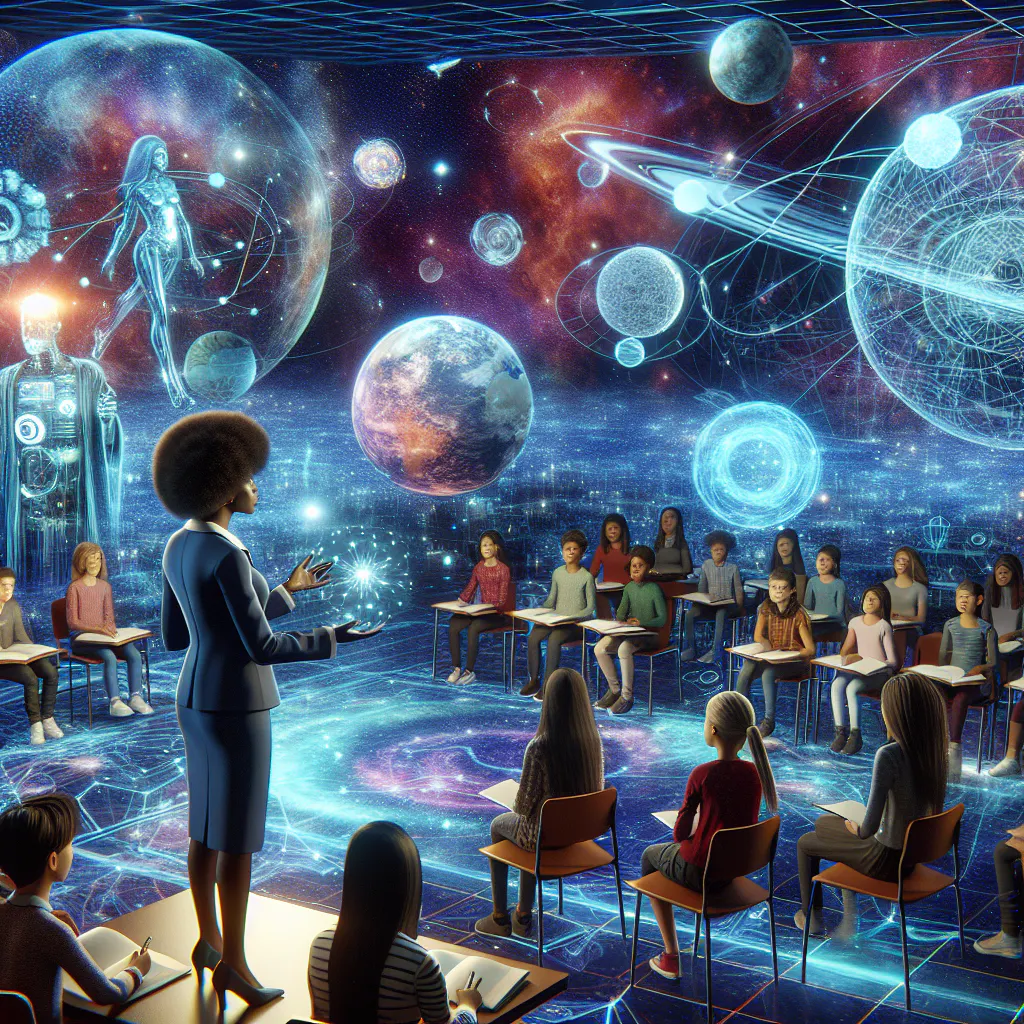
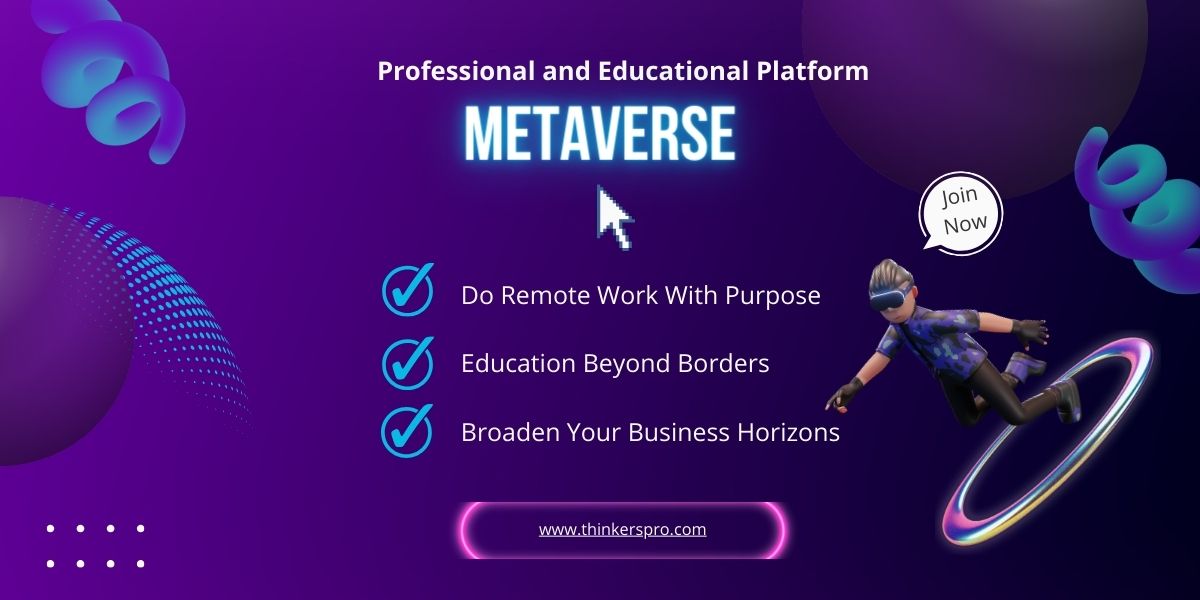
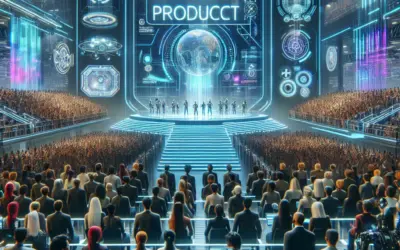
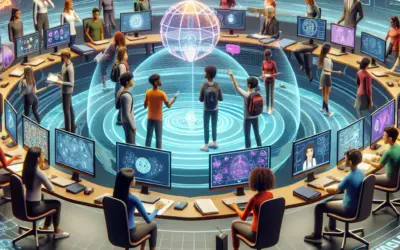
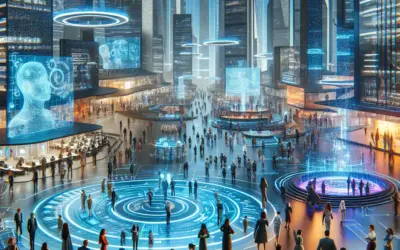

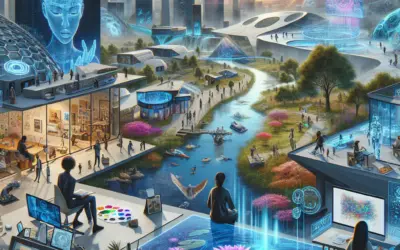
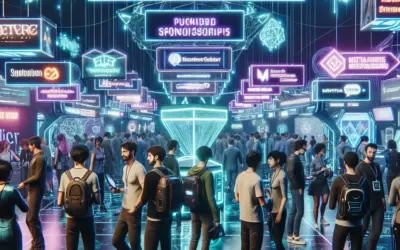
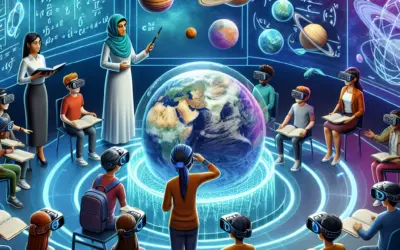
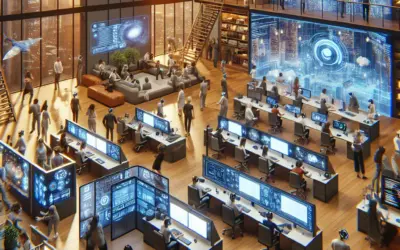
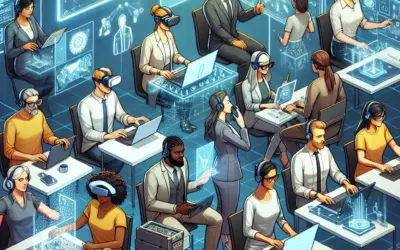
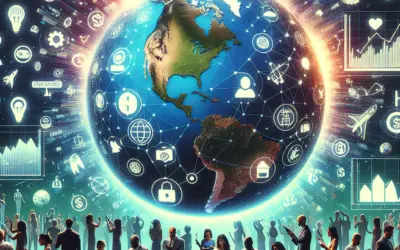
0 comentarios